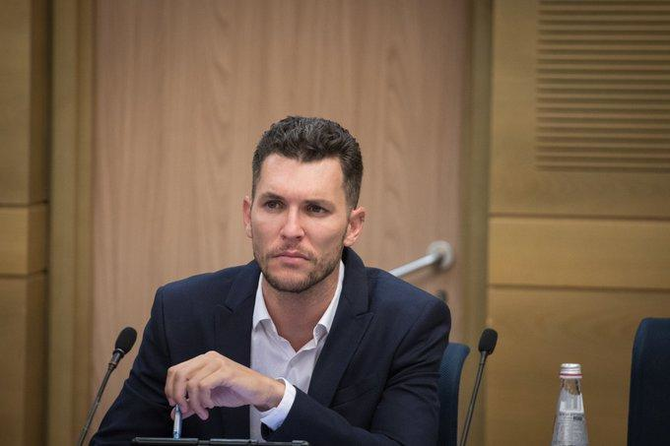BEIRUT: Israel rejected revisions requested by Lebanon to a US-brokered border demarcation proposal on Thursday, throwing into doubt years of diplomatic efforts to enable the two countries to extract gas in a disputed part of the Mediterranean.
Lebanese President Michel Aoun said the revisions made by Lebanon on the deal with Israel guarantee Lebanon’s rights to explore for oil and gas in the fields specified in the exclusive economic zone.
He added Lebanon’s revisions prevent any interpretations that do not apply to the framework that Lebanon specified for the demarcation process during the indirect, months-long negotiations handled by the US mediator, Amos Hochstein.
Israel announced on Thursday that it rejects the amendments requested by Lebanon to the US proposal.
A Lebanese official said: “Lebanon will consult Hochstein to know if they rejected the amendments fully or in part, or if they just have their own comments on the proposal.”
Deputy Parliament Speaker Elias Bou Saab, who is following up on the negotiations with Hochstein, said he is contacting him every hour to resolve the outstanding issues.
Reuters quoted an Israeli official as saying that Israeli Prime Minister Yair Lapid “was updated on the details of the substantial changes Lebanon is seeking to make in the agreement and instructed the negotiating team to reject them.”
According to Israeli media, Israel will not give up its security and economic interests, even if that means that there will be no agreement soon.
“Israel will produce gas from the Karish rig as soon as it is possible to do so. If Hezbollah or anyone else tries to damage the Karish rig or threaten us, the negotiations on the maritime line will stop immediately,” the Israeli official said, noting: “Hezbollah Secretary-General Hassan Nasrallah will have to explain to the Lebanese why they do not have a gas field and an economic future.”
Israeli Defense Minister Benny Gantz warned: “The state of Lebanon will bear a heavy military price if Hezbollah attacks and the maritime border demarcation agreement with Lebanon will harm Iran’s interests.”
Lapid and former Prime Minister Benjamin Netanyahu are locked in a fierce political battle ahead of the Israeli parliamentary elections, scheduled for early November.
“The intense pressure exerted by my friends and me, made Lapid withdraw from the agreement that would have surrendered Israeli rights to Lebanon,” Netanyahu said.
The Israeli media quoted Netanyahu as saying: “Israel needs a different leadership, an experienced and strong prime minister who resists pressure,” adding: “We will not let Israel surrender to Nasrallah.”
The US proposal was initially welcomed by both Israel and Lebanon until the latter suggested some revisions during a meeting on Monday between Aoun, Parliament Speak Nabih Berri, and Caretaker Prike Minister Najib Mikati, and handed them over to the US Ambassador to Beirut Dorothy Shea.
According to Israeli media, the main sticking point was over recognition of a line of demarcation buoys that Israel has strung out to sea from its coast.
Lebanon reiterated that the so-called line of buoys is meaningless and does not exist.
Lebanese media reported that Lebanon requested “to cross out the phrase Blue Line when referring to the borders, and to stress that Lebanon adheres to its international borders.”
Lebanon also suggested renaming the “possible southern Sidon reservoir” as the “Sidon-Qana field,” and clarified that this field will be “developed by Lebanon and for the benefit of Lebanon.”
About the companies that will operate in offshore fields, the US proposal stipulates that they “shall not be subject to US sanctions,” but Lebanon demanded replacing this phrase with “to be subject to international sanctions.”
The US proposal also stipulated that “Israel does not object to any measures taken in the Qana field from the side beyond Line 23.” Lebanon requested that the phrase be amended to “Israel does not and will not object” as a future guarantee.
Lebanon objected to the phrase “financial compensation,” and said that if there is a financial settlement between the operating company and Israel, then “Lebanon is not interested.”
Other demands from Lebanon included amending the phrase “the US will contribute to facilitating the work of gas-extracting companies after the agreement,” calling on the US to facilitate the work of gas-extracting companies “directly and quickly” once an agreement with Israel is reached.
There was no immediate response from Hezbollah on the new Israeli position. Nasrallah had stated over the weekend that Hezbollah supports the official Lebanese stance on the issue of maritime borders and oil and gas rights.




























